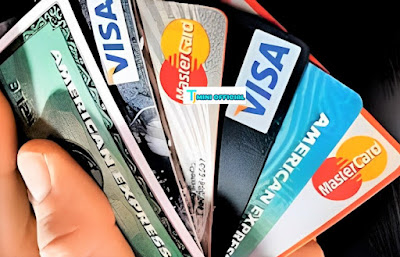Credit card processing plays a crucial role for businesses seeking to accept credit card payments, regardless of whether they operate a physical store or an online venture. It is essential to secure a dependable credit card processing solution that aligns with your specific requirements. This article offers an overview of credit card processing, explaining its functioning and importance, while also providing valuable tips to help you discover the ideal solution tailored to your business needs.
Credit card processing entails the acceptance of credit cards as a means of payment for goods or services, which can be executed either through a physical point-of-sale (POS) system or online. Typical credit card processing solutions encompass a merchant account, credit card reader, and payment gateway.
To initiate credit card processing, businesses must apply for and gain approval for a merchant account, a specialized bank account that facilitates credit card payments. Subsequently, they must set up a credit card reader, which may take the form of a physical device integrated with the POS system or a virtual terminal designed for online payment processing. The final component essential for credit card processing is the payment gateway, a software interface that connects the merchant account to the payment processor, the entity responsible for handling the actual credit card transactions. By combining these elements, businesses can effectively process credit card payments from their customers.
A standard credit card transaction involves three key parties: the merchant (the business offering goods or services), the customer (the individual using their credit card for payment), and the credit card processor (the company responsible for handling the credit card payment).
During the purchase process, the merchant forwards the credit card information to the credit card processor. The processor then evaluates the transaction, either approving or declining it. Upon approval, the processor transfers the funds to the merchant's account, which may take a few days. Once the funds are available in the merchant's account, they can be further transferred to the designated business bank account for utilization.
During your search, compare the fee structures of various processors, favoring those with a flat fee per transaction rather than a percentage of the total sale. Additionally, avoid processors that impose hidden credit card processing fees.
Matching the processing capabilities to your business needs is vital. If you run a smaller business, a processor capable of handling moderate transaction volumes may suffice. However, larger enterprises should ensure the chosen processor can efficiently manage higher transaction loads.
Finally, research the reputation of the credit card processor you're considering. Look into online reviews and feedback from other businesses to gain insights into the quality of their services and customer experiences. A reputable and well-regarded processor is likely to provide a more reliable and satisfactory credit card processing solution.
Credit Card Processing: What Is It?
Credit card processing entails the acceptance of credit cards as a means of payment for goods or services, which can be executed either through a physical point-of-sale (POS) system or online. Typical credit card processing solutions encompass a merchant account, credit card reader, and payment gateway. To initiate credit card processing, businesses must apply for and gain approval for a merchant account, a specialized bank account that facilitates credit card payments. Subsequently, they must set up a credit card reader, which may take the form of a physical device integrated with the POS system or a virtual terminal designed for online payment processing. The final component essential for credit card processing is the payment gateway, a software interface that connects the merchant account to the payment processor, the entity responsible for handling the actual credit card transactions. By combining these elements, businesses can effectively process credit card payments from their customers.
How Does the Processing of Credit Cards Work?
A standard credit card transaction involves three key parties: the merchant (the business offering goods or services), the customer (the individual using their credit card for payment), and the credit card processor (the company responsible for handling the credit card payment).
During the purchase process, the merchant forwards the credit card information to the credit card processor. The processor then evaluates the transaction, either approving or declining it. Upon approval, the processor transfers the funds to the merchant's account, which may take a few days. Once the funds are available in the merchant's account, they can be further transferred to the designated business bank account for utilization.
Choosing a Credit Card Processor: Some Advice
During your search, compare the fee structures of various processors, favoring those with a flat fee per transaction rather than a percentage of the total sale. Additionally, avoid processors that impose hidden credit card processing fees.
Matching the processing capabilities to your business needs is vital. If you run a smaller business, a processor capable of handling moderate transaction volumes may suffice. However, larger enterprises should ensure the chosen processor can efficiently manage higher transaction loads.
Finally, research the reputation of the credit card processor you're considering. Look into online reviews and feedback from other businesses to gain insights into the quality of their services and customer experiences. A reputable and well-regarded processor is likely to provide a more reliable and satisfactory credit card processing solution.
Tags:
English WriteUps



